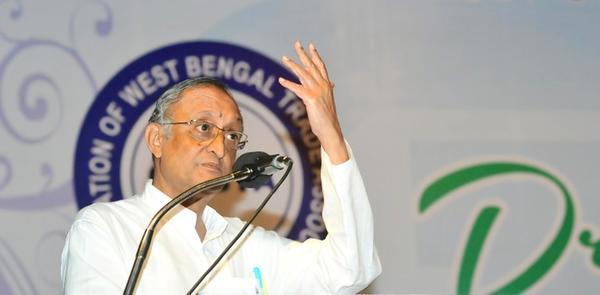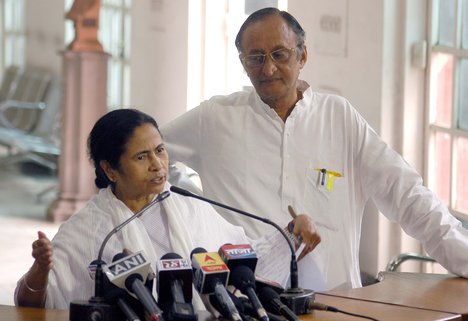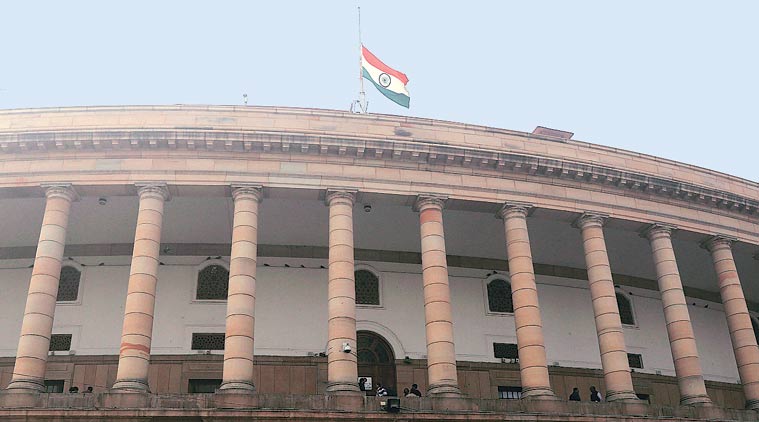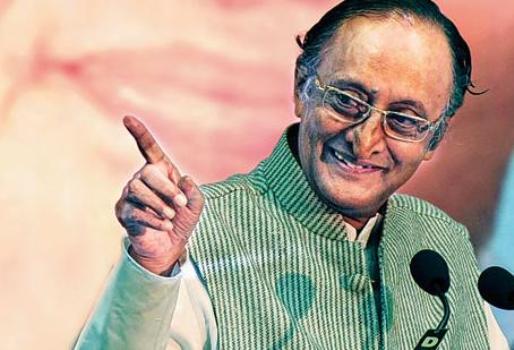Bengal Chief Minister Mamata Banerjee on Tuesday lashed out at the Centre for destroying the federal structure of the country as the state governments were being forced to follow their (Centre’s) policies despite having objections.
The West Bengal Assembly on Tuesday passed the State Goods and Services Tax (SGST) Bill, 2017. Trinamool’s ideological position on GST would not alter, the Bengal CM said. “The common people are facing problems and since we value democracy the party will stand behind the masses,” she said speaking in the Assembly after the passing of the Bill.
“The Centre could have fed many poor people with the money which had gone in the ad spend for creating awareness about GST… The country is now in an acute crisis,” she said. The state had issued an ordinance in June end to facilitate treasury operations by the government from July 1, the date of implementation of the new tax regime across the country.
The Bengal CM said that the state government had “no option” but to issue the ordinance on GST as otherwise, the state would not have been able to conduct any treasury operation. “The state government is sitting before the nozzle of a gun and the central government machinations forced us to do that,” she said.
The Bengal Chief Minister said the state government was clearly against the hasty implementation of the new tax regime and had urged the Centre to postpone it by two months. “But we were really hard-pressed and so the ordinance had to be issued.” The government, she said, needed money to pay salaries, make developmental expenditure and others. As the ordinance had a definite lifetime, it had to be ultimately ratified by the Assembly. She said owing to many objections raised by state finance minister Amit Mitra at the GST Council meetings, taxes on many items of common use had been lowered.
On Trinamool’s stand, she said, “Previously we had supported GST as it was portrayed to be uniform across the nation, but the experience is totally different.” The textile sector, medicine shops, small businessmen had been affected by the new tax law, she said, adding that demonetisation and GST were “two big scandals” perpetrated by the BJP-led government at the Centre.
বাধ্য হয়ে মানছি জিএসটি: মমতা বন্দ্যোপাধ্যায়
কেন্দ্রের জন্য বাধ্য হয়ে রাজ্য পণ্য ও পরিষেবা কর ব্যবস্থা মেনে নিয়েছি কিন্তু গরিব মানুষের স্বার্থে এই কর সম্পর্কে আমাদের যে লড়াই, তা যেমন ছিল, তেমন চলবে। মুখ্যমন্ত্রী মমতা ব্যানার্জি মঙ্গলবার বিধানসভায় ‘ওয়েস্ট বেঙ্গল গুডস অ্যান্ড সার্ভিস ট্যাক্স’ বিল অনুমোদন করাতে গিয়ে এই কথা বলেছেন।
তিনি বলেন, “পণ্য পরিষেবা করের ব্যাপারে আমরা কখনওই আমাদের অবস্থান থেকে সরে আসেনি। এক দেশ এক কর ব্যবস্থা, আমরা সমর্থন করেছি। কিন্তু, সবসময় বলেছি, দেখতে হবে এর ফলে গরিব মানুষ যেন ক্ষতিগ্রস্ত না হয়। উপযুক্ত পরিকাঠামো সারা দেশে গড়ে তোলার জন্যে, বিষয়টি সম্পর্কে মানুষকে অবহিত করার জন্য, তাড়াহুড়ো না করতে অনুরোধ করেছিলাম। তা সত্ত্বেও ওরা তাড়াহুড়ো করেছে। গরিব মানুষের কথা ভাবেনি। এরপরেও গরিব মানুষের যেটুকু সুবিধা আছে তা আমাদের লড়াইয়ের জন্যই। আমাদের অর্থমন্ত্রী অমিত মিত্র অনেক সময়ই একা লড়াই করেছেন। জয়ললিতা ছাড়া কেউ পাশে ছিলেন না। এর আগে আমরা অধ্যাদেশ জারি করেছি, এখন আইন করেছি। না–হলে কেন্দ্রের অসহযোগিতায় সরকারি কাজকর্ম বন্ধ হয়ে যেত। আমাদের টাকা আমরাই ব্যবহার করতে পারতাম না। জিএসটি আইন হয়ে যাওয়ার পর এখন তো আর এমপাওয়ার্ড কমিটি নেই। কাউন্সিল হয়েছে। তার চেয়ারম্যান অরুণ জেটলি। তবুও আমরা সাধারণ মানুষের স্বার্থে বিভিন্ন দ্রব্য ও পরিষেবায় করের হার কমানোর জন্যে লড়াই চালিয়ে যাচ্ছি।”
অর্থমন্ত্রী অমিত মিত্র বলেন, “মুখ্যমন্ত্রীর নির্দেশে জিএসটি নিয়ে এমপাওয়ার্ড কমিটিতে প্রচণ্ড লড়াই করেছি বলেই রাজ্যগুলো কিছুটা সুবিধা পাচ্ছে। সুজন চক্রবর্তী জানান, বাংলার বঁড়শি সারা ভারতে এমনকী দেশের বাইরেও রপ্তানি হয়। বঁড়শি ও পোশাক শিল্পে যাতে করের বোঝা কমে তা দেখতে হবে। এবং ওষুধের ওপর বিশেষ করে জীবনদায়ী ওষুধের ওপর কর যাতে ৫ শতাংশের বেশি না হয় তা নিয়ে কেন্দ্রকে চাপ দেওয়া হোক।”







